Annual Hackathon Trains Students To Rethink Food Systems In The Anthropocene

The annual hackathon “Rethinking Food Systems in the Anthropocene” is one of the most established activities for social entrepreneurship and innovation within Aurora. The fifth edition of the hackathon took place in October 2025 at the Università Federico II of Naples (UNINA), hosting 47 international students coming from eight European universities involved in the Aurora network.

Group gathering at the 5th edition of the seizmic Hackathon hosted by Università Federico II of Naples (UNINA)
Sustainable and Regenerative Food Systems
The hackathon kicked off with opening remarks by Aurora Institutional Coordinators at UNINA, Alessandro Arienzo and Bruno Catalanotti, followed by an introduction from Ramon Rispoli, Associate Professor of Design at the Department of Architecture at UNINA. Adam Arvidsson, professor at UNINA’s Department of Social Sciences, delivered his lecture “Anthropocene/Capitalocene”, exploring critical perspectives of societal transformation due to human activities, and capitalism. One of the main sessions of the day focused on creative cultural processes, via an insightful talk by Ottavia Semerari, co-founder of Variabile K, a social enterprise based in Ercolano, nearby Naples. Guest speaker Yaiza Agata Bocos Mirabella of Universidad de La Laguna, also gave a lecture on the “Aesthetics of Complexity: Between Art and Life”.
Following a morning of thought-provoking sessions, the afternoon continued with the Design Brief. During this briefing, participants were introduced to the central challenge of rethinking food systems in the Anthropocene. UNINA doctoral candidate Nunzia Ambrosino delivered a lecture on “How to Transform Cities in Regenerative Environments”. Her lecture was followed by an engaging talk with Giulia Sodano, one of the founders of N’SeaYet, and further opened a discussion led by Rosanna Laudanno from Parco Viviani, Comunità del Parco. This discussion emphasised the social and ecological value of community gardens in Naples.
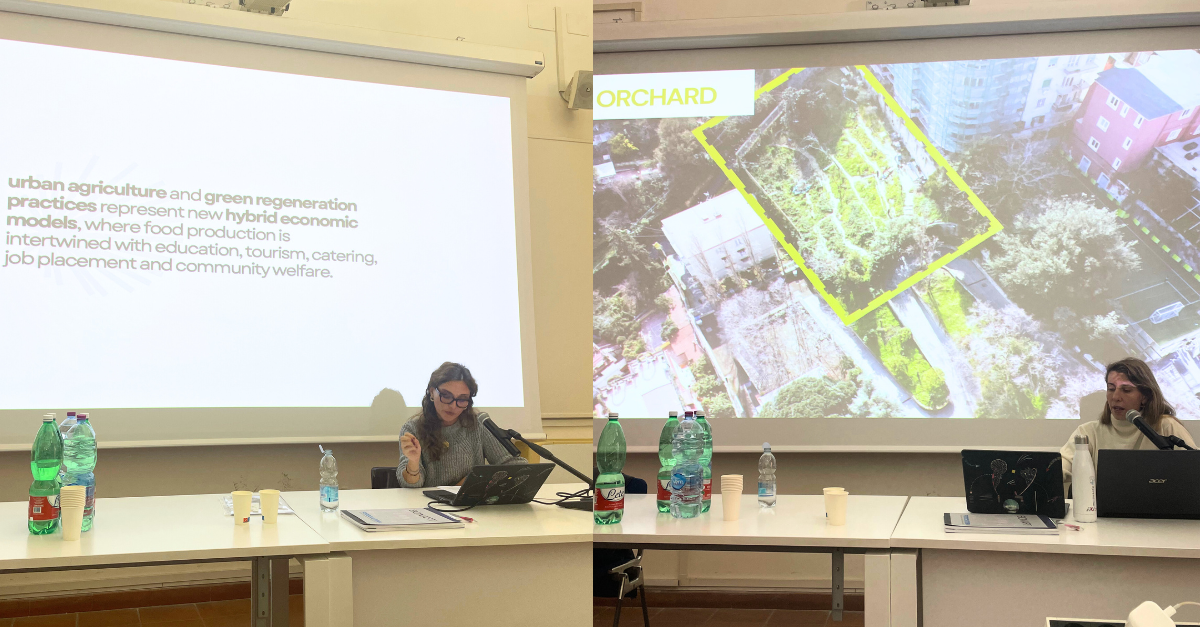


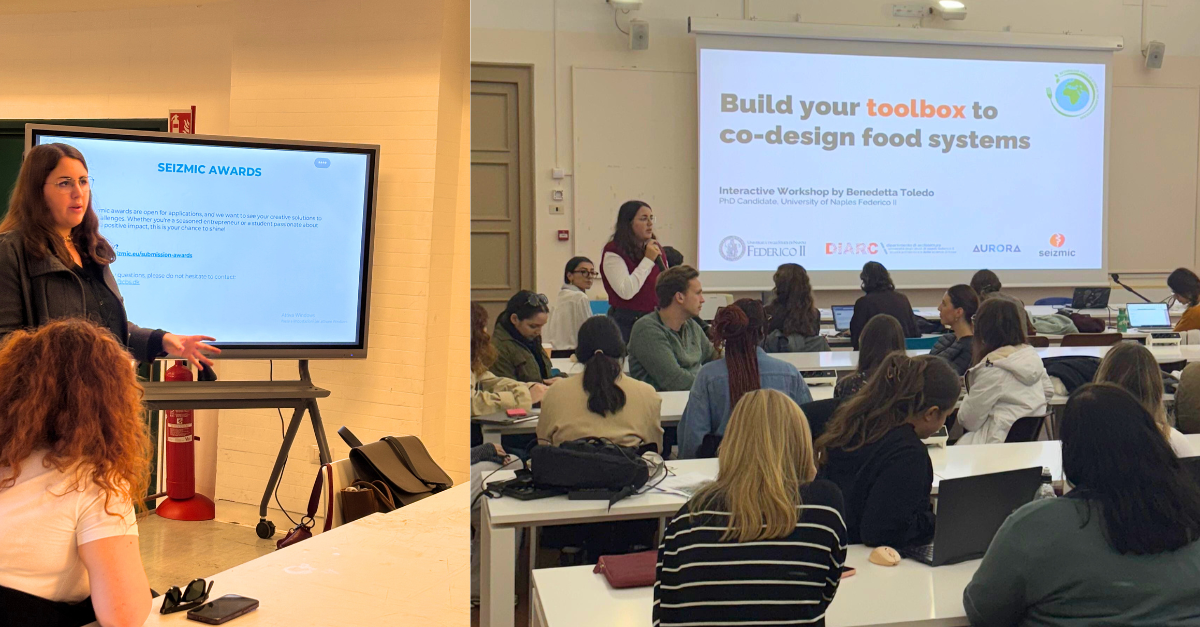
Academics and guest speakers deliver lectures on urban agriculture, circular economy, civic responsibility, and the seizmic tool
After a full day of lectures and a preview of the hackathon challenge ahead, participants had the opportunity to experience the knowledge they had acquired during a field trip to Parco Viviani the next day. Representatives from Aurora universities Isabel Froes of Copenhagen Business School (CBS), and Begoña Alonso-Fernández and Léa Chambaudet from Université Paris-Est Créteil (UPEC), offered insights into ecological regeneration through a talk on permaculture. From the talk to the table, students enjoyed local vegetarian dishes especially made by the amazing cooks of Tavuliata, a female empowerment project by Variabile K.
Day two continued with a lecture on “Seeds of Liberation” by Valentina Gómez Alcade from the seizmic MSCA Doctoral Network. The lecture zoomed in on transition design and the politics of traditional food. Following this talk, UNINA doctoral candidate Benedetta Toledo facilitated an interactive workshop called “Build your toolbox to co-design food systems”, where students worked in groups to learn to recognise the key values for sustainable and social innovative food systems.
Circular Economy and the Role of Society
As the first two days concentrated on introducing students to sustainable and regenerative food systems, day three started with an exposure to themes related to society and societal impact. Martina Bosone from UNINA’s Department of Architecture, gave a talk entitled “The Circular Economy as a Regenerative Model to Reshape Production and Consumption Processes in Cities”. This talk was followed by Vincenzo Capasso, President of Let’s Do It Italy, who presented “Citizen Science: The Role of Civic Responsibility to Regenerate Agricultural Lands”.
Then, UNINA doctoral candidate Edoardo Amoroso delivered “Feeding the City: Rethinking Food Infrastructures for the Smart Land”. The day concluded with a field trip to the Florist Bar and a conversation on urban food production and permaculture with Stefania Salvetti, owner of the bar and gardener.
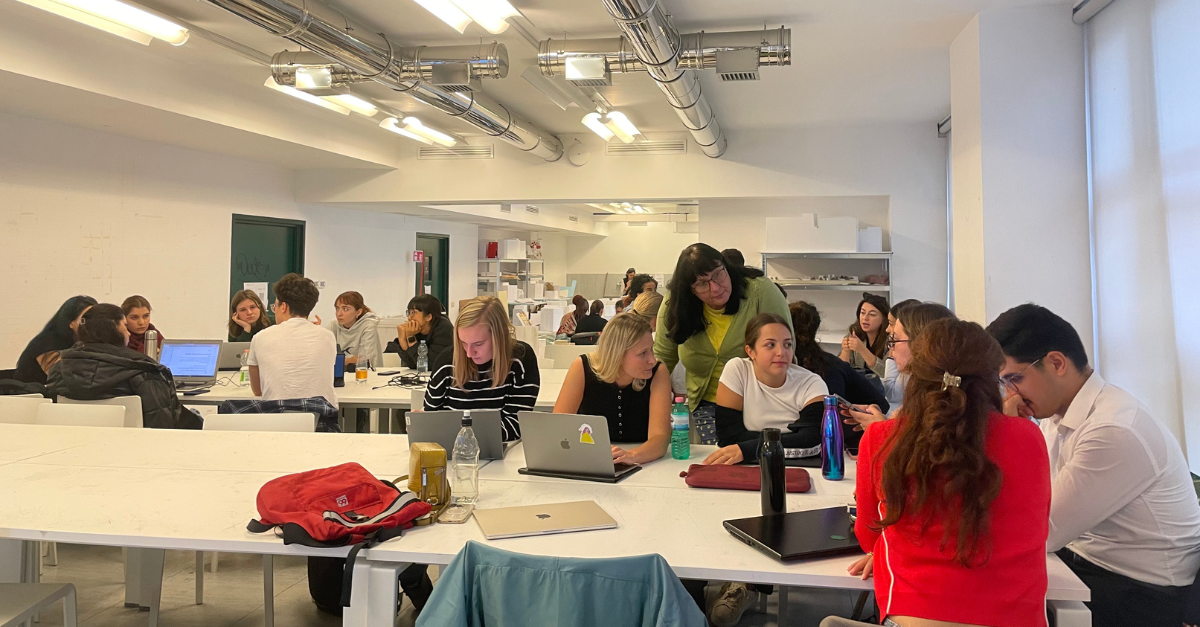
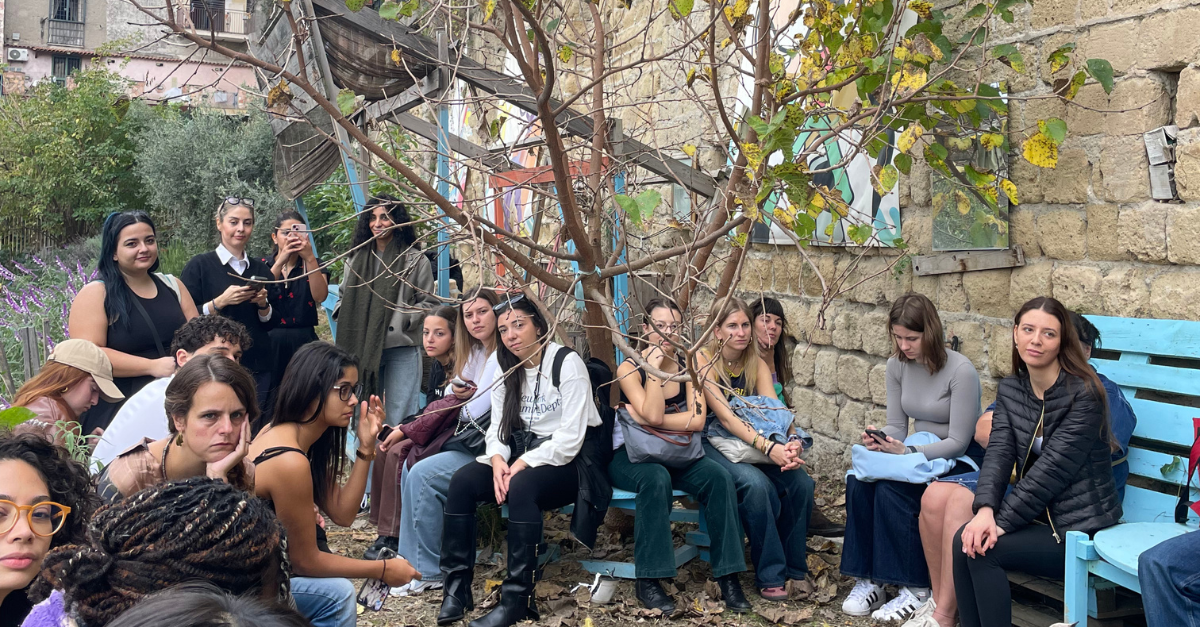
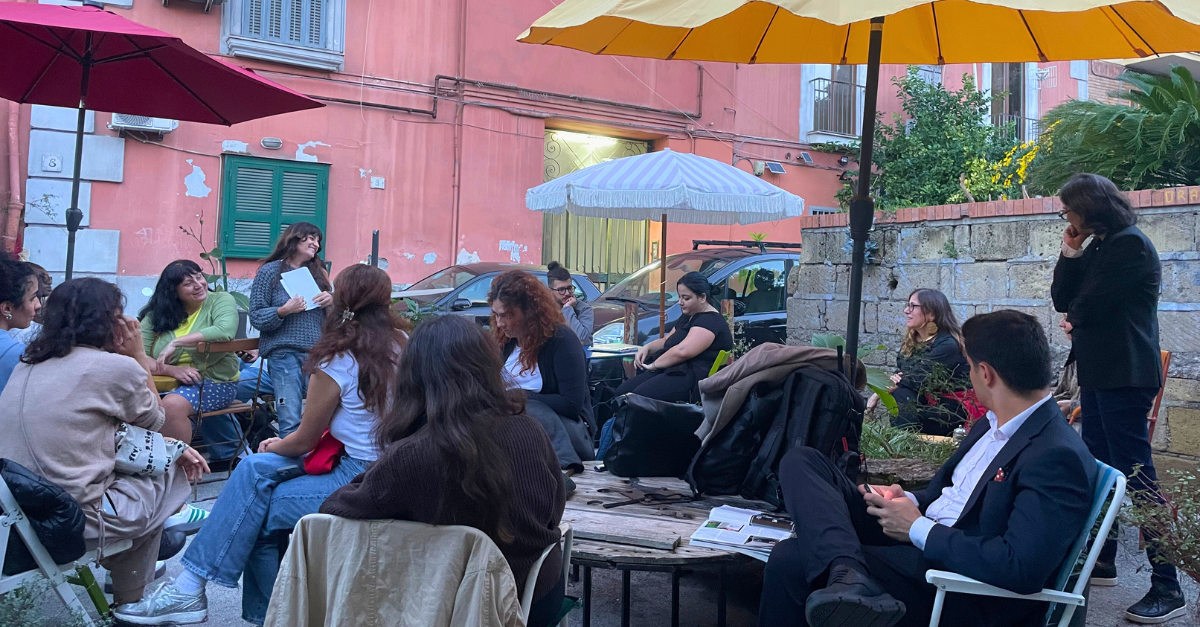
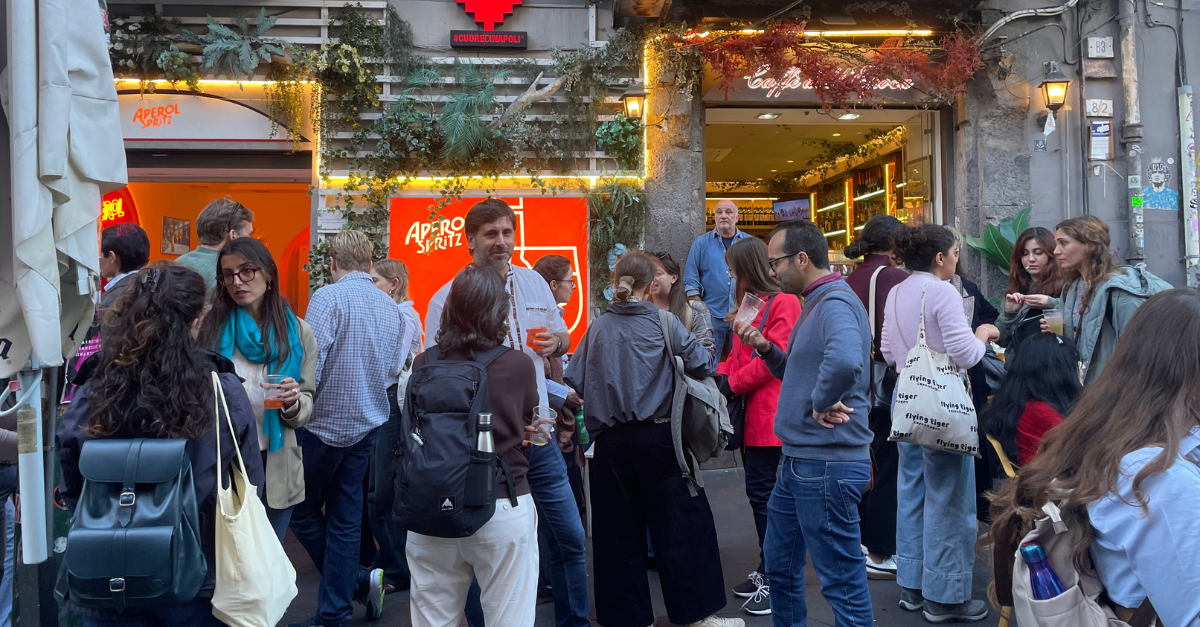
Field trips for hackathon participants to experience urban food production, permaculture, and sustainable food systems
Transdisciplinary Hackathon to Rethink Food Systems in the Anthropocene
The final two days of the week-long in-person hackathon was fully dedicated to teamwork and the development of final deliverables in response to the Design Brief provided. Through collaboration and practical discussions, participants applied frameworks from the previous lectures and used the seizmic app to refine their design concepts. Mentors guided the process, encouraging each team to integrate ecological, social, and technological perspectives into their solutions.
Since students come from different educational backgrounds, such as Design, Business, Social Sciences and more, the hackathon fostered innovation, cooperation, and transdisciplinary dialogue throughout the entire week. During the submission of the final deliverables, participants presented their projects, showcasing their diverse approaches to rethinking food systems in the Anthropocene. The event concluded with final remarks and acknowledgments, celebrating an inspiring week of cross-disciplinary and international collaboration and creative engagement across cities, communities, and nature.
This hackathon is part of the seizmic courses undertaken within the framework of the Aurora 2030 Work Package 3 “Social Entrepreneurship and Innovation”. Discover more about seizmic, its different activities, and its learning impact for students engaging in social entrepreneurship.